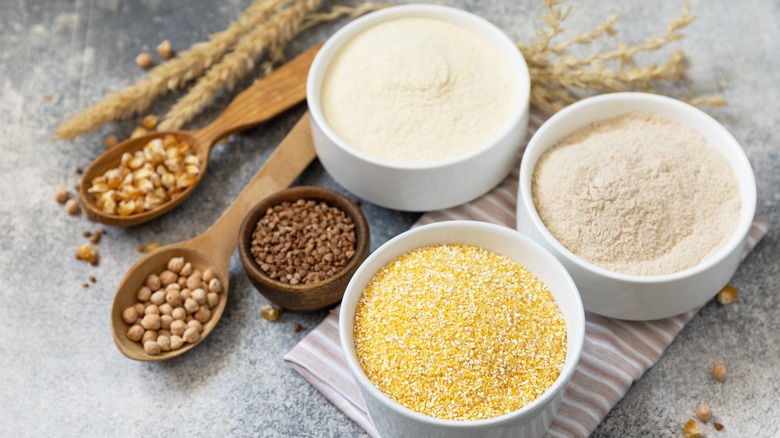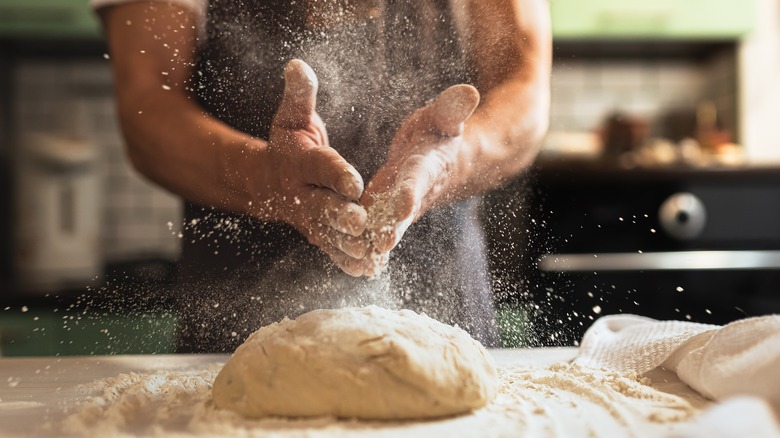Are Pastry Flour And Cake Flour Interchangeable?
To the uninitiated, flour is flour and that's that. But to the many pastry chefs and bakers of the world, very specific flours are optimized for very particular uses. Baking requires both culinary sense and scientific precision, so you should know when to use pastry flour and when to use cake flour.
According to Baking Kneads, pastry flour is a finely ground flour that has around a 9% protein content and is used to produce pastries like pie crusts, croissants, or tarts. The higher gluten content that comes from the protein of pastry flour makes for very light, flaky, and chewier breads.
Cake flour comes in a variety of forms and has a lower protein content than pastry flour. Cake flour is ground extra fine, which gives it the signature crumbly or fluffy texture that cake gets to become. Obviously cake flour is suited to making all kinds of cakes whether they be sponges, cupcakes, or pound cakes, per MasterClass.
Substitutions and alternative flours
Generally, because the kind of flour you use is so important to the final product of your baked goods and because both kinds of flour are so very different, substituting pastry flour for cake flour or the other way around is not going to result in your desired texture. The protein contents (and therefore gluten levels) and how fine the flour will determine the texture of your breads and the variety makes them difficult to manage.
If you must substitute flours, MasterClass recommends mixing ½ cup of all-purpose flour with ½ cup of cake flour to use in place of a cup of pastry flour. Baking Kneads recommends mixing 14 tablespoons of all-purpose flour with 2 tablespoons of cornstarch to get something similar to cake flour. Of course, you'd like to always have both flours on hand if you're baking, but these substitutes will work nearly as well as their original counterparts.

